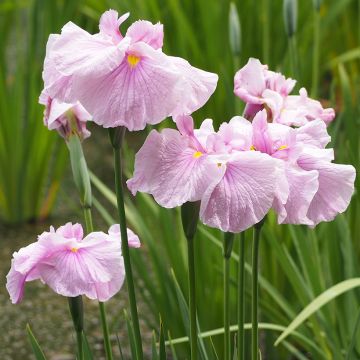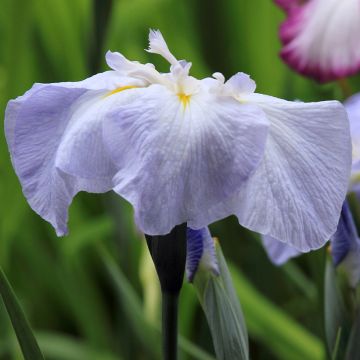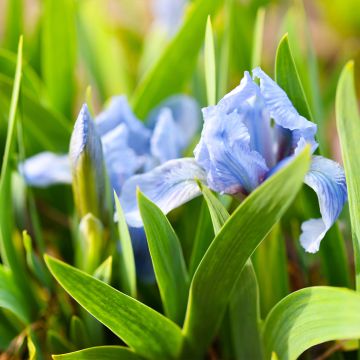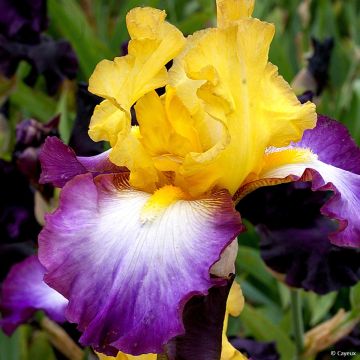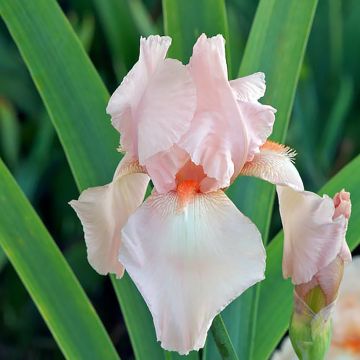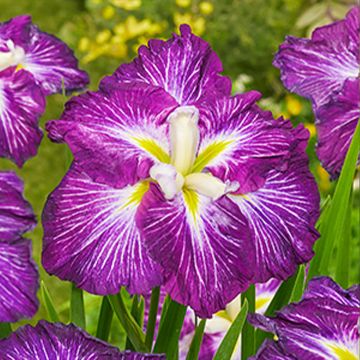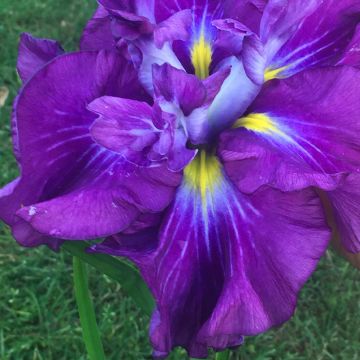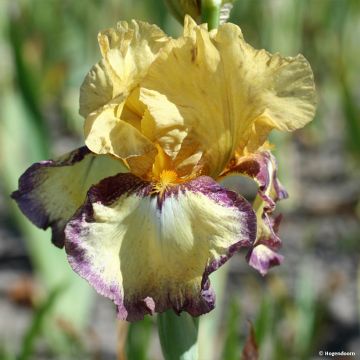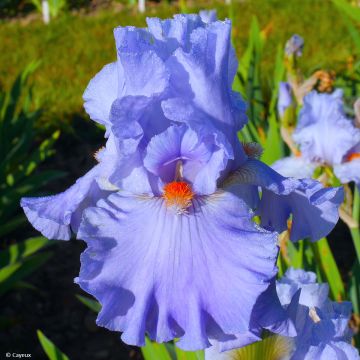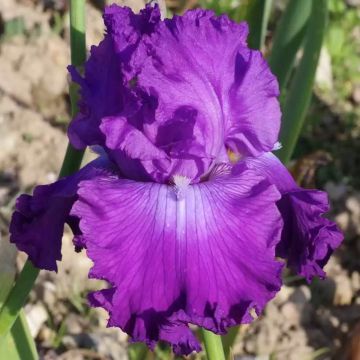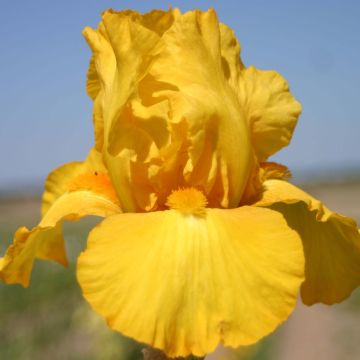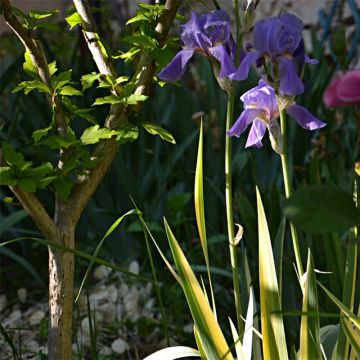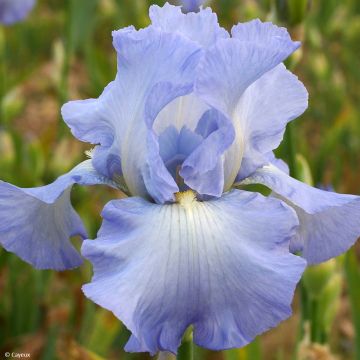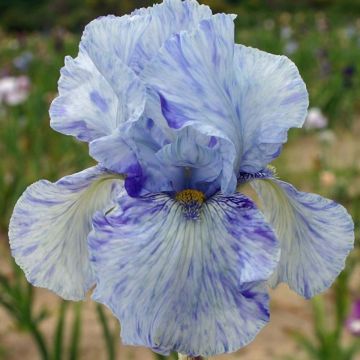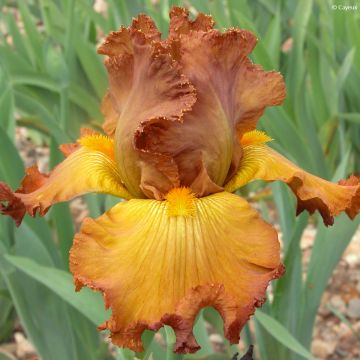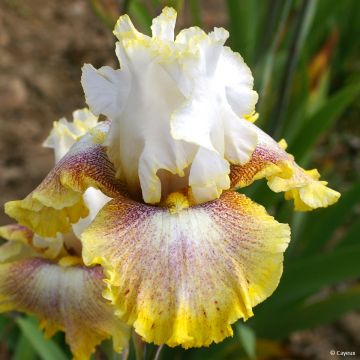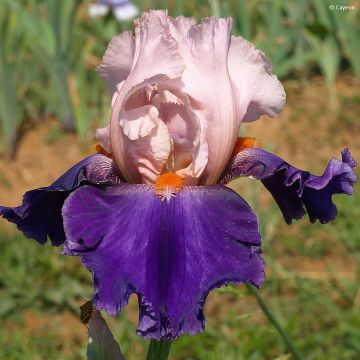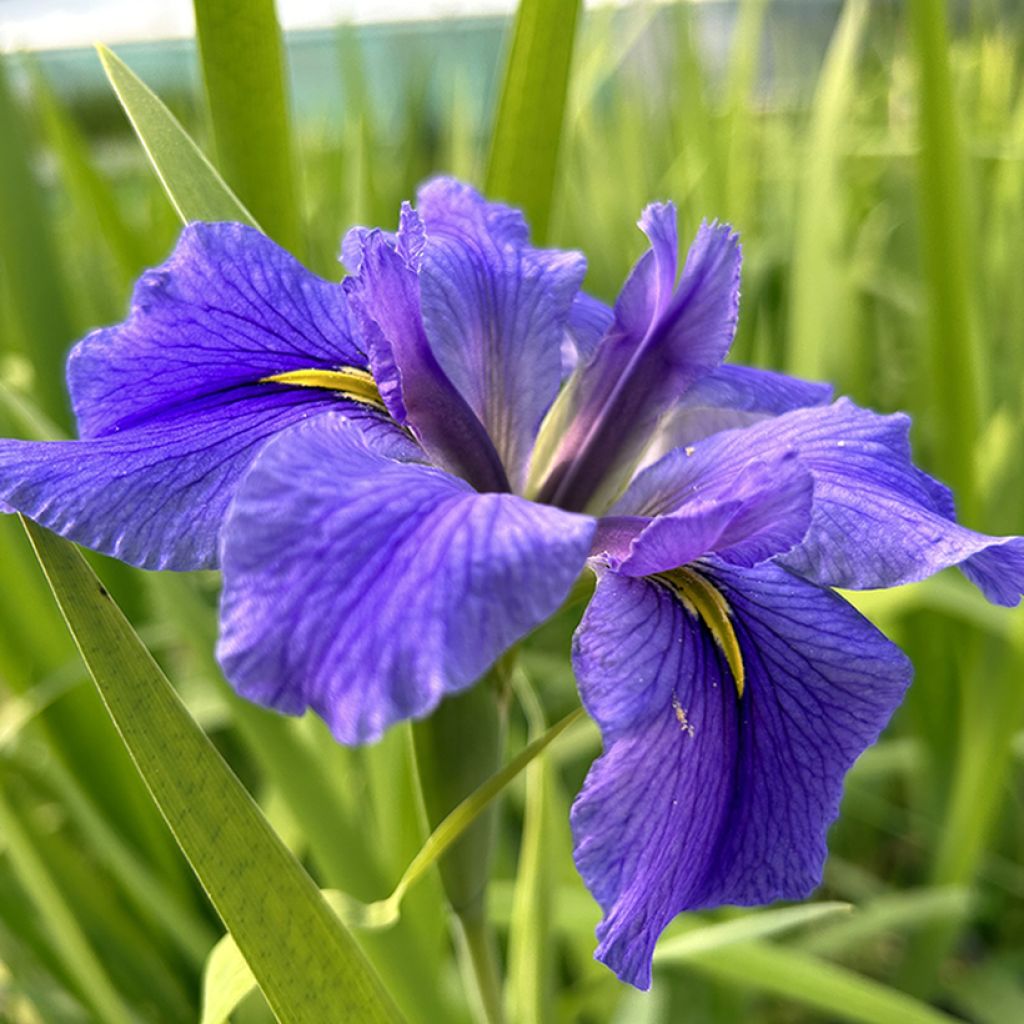

Iris laevigata Latour Marliac - Water Iris
Iris laevigata Latour Marliac - Water Iris
Iris laevigata Latour Marliac
Water Iris
Special offer!
Receive a €20 voucher for any order over €90 (excluding delivery costs, credit notes, and plastic-free options)!
1- Add your favorite plants to your cart.
2- Once you have reached €90, confirm your order (you can even choose the delivery date!).
3- As soon as your order is shipped, you will receive an email containing your voucher code, valid for 3 months (90 days).
Your voucher is unique and can only be used once, for any order with a minimum value of €20, excluding delivery costs.
Can be combined with other current offers, non-divisible and non-refundable.
Why not try an alternative variety in stock?
View all →This plant carries a 6 months recovery warranty
More information
We guarantee the quality of our plants for a full growing cycle, and will replace at our expense any plant that fails to recover under normal climatic and planting conditions.
Description
Iris laevigata 'Latour-Marliac' is a very beautiful variety of aquatic iris with dark blue flowers. Each flower consists of 3 upright petals surmounting 3 wider and trailing petals. The latter have a thin yellow midline tinged with green. In spring, it forms a dense clump that is green and from which the flowering stems emerge in early summer. This hardy perennial is easy to grow in the sun in moist soil and is perfect for ornamenting the banks. It can also tolerate having its feet in the water, at a shallow depth.
From the Iridaceae family, Iris laevigata is a rhizomatous herbaceous perennial plant classified in the section of non-bearded irises. Native to Japan, just like its close relative Iris ensata (the other Japanese Iris), it distinguishes itself with its smaller-sized flowers and its ease of cultivation. Its rhizomes can perfectly tolerate having their feet in the water, at a shallow depth of 5 to 15 cm. Its flowers, although smaller in size, are nonetheless magnificent. They have been cultivated for centuries for bouquets in its country of origin.
The 'Latour-Marliac' variety forms, in spring, a dense clump of fine and green foliage, with an upright habit, reaching a height of 30 to 40 cm. It spreads in width over time through its rhizomes. Flowering takes place between June and July, depending on the climate. The flowering stems emerge above the foliage, each carrying 2 to 4 dark blue flowers, approximately 6-8 cm in diameter.
To create an interesting mass effect, do not hesitate to plant the Iris laevigata 'Latour-Marliac' in groups of 3 to 5. It prefers a sunny exposure and a moist, non-calcareous soil. It can tolerate being submerged all year at a shallow depth, making it perfect for decorating the banks of a pond. This Japanese water iris pairs well with white-flowering aquatic plants, such as Iris laevigata 'Snowdrift' or Filipendula purpurea 'Alba'. Add some small blue flowers in the foreground with low-growing plants like brooklime or water forget-me-not.
Report an error about the product description
Flowering
Foliage
Plant habit
Botanical data
Iris
laevigata
Latour Marliac
Iridaceae
Water Iris
Cultivar or hybrid
Other Iris A to Z
View all →Planting and care
The 'Latour-Marliac' Iris laevigata can be planted in full sun (where it will be more floriferous) or possibly in partial shade in a non-calcareous and moist, very moist, or even flooded soil. It can even grow with its feet in the water, between 5 and 15 cm deep. It is hardier than the other Japanese iris, Iris ensata. It can tolerate temperatures as low as -15°C. Cut the flowering stems at the end of flowering and the dried leaves as they appear.
Planting period
Intended location
Care
This item has not been reviewed yet - be the first to leave a review about it.
Haven't found what you were looking for?
Hardiness is the lowest winter temperature a plant can endure without suffering serious damage or even dying. However, hardiness is affected by location (a sheltered area, such as a patio), protection (winter cover) and soil type (hardiness is improved by well-drained soil).

Photo Sharing Terms & Conditions
In order to encourage gardeners to interact and share their experiences, Promesse de fleurs offers various media enabling content to be uploaded onto its Site - in particular via the ‘Photo sharing’ module.
The User agrees to refrain from:
- Posting any content that is illegal, prejudicial, insulting, racist, inciteful to hatred, revisionist, contrary to public decency, that infringes on privacy or on the privacy rights of third parties, in particular the publicity rights of persons and goods, intellectual property rights, or the right to privacy.
- Submitting content on behalf of a third party;
- Impersonate the identity of a third party and/or publish any personal information about a third party;
In general, the User undertakes to refrain from any unethical behaviour.
All Content (in particular text, comments, files, images, photos, videos, creative works, etc.), which may be subject to property or intellectual property rights, image or other private rights, shall remain the property of the User, subject to the limited rights granted by the terms of the licence granted by Promesse de fleurs as stated below. Users are at liberty to publish or not to publish such Content on the Site, notably via the ‘Photo Sharing’ facility, and accept that this Content shall be made public and freely accessible, notably on the Internet.
Users further acknowledge, undertake to have ,and guarantee that they hold all necessary rights and permissions to publish such material on the Site, in particular with regard to the legislation in force pertaining to any privacy, property, intellectual property, image, or contractual rights, or rights of any other nature. By publishing such Content on the Site, Users acknowledge accepting full liability as publishers of the Content within the meaning of the law, and grant Promesse de fleurs, free of charge, an inclusive, worldwide licence for the said Content for the entire duration of its publication, including all reproduction, representation, up/downloading, displaying, performing, transmission, and storage rights.
Users also grant permission for their name to be linked to the Content and accept that this link may not always be made available.
By engaging in posting material, Users consent to their Content becoming automatically accessible on the Internet, in particular on other sites and/or blogs and/or web pages of the Promesse de fleurs site, including in particular social pages and the Promesse de fleurs catalogue.
Users may secure the removal of entrusted content free of charge by issuing a simple request via our contact form.
The flowering period indicated on our website applies to countries and regions located in USDA zone 8 (France, the United Kingdom, Ireland, the Netherlands, etc.)
It will vary according to where you live:
- In zones 9 to 10 (Italy, Spain, Greece, etc.), flowering will occur about 2 to 4 weeks earlier.
- In zones 6 to 7 (Germany, Poland, Slovenia, and lower mountainous regions), flowering will be delayed by 2 to 3 weeks.
- In zone 5 (Central Europe, Scandinavia), blooming will be delayed by 3 to 5 weeks.
In temperate climates, pruning of spring-flowering shrubs (forsythia, spireas, etc.) should be done just after flowering.
Pruning of summer-flowering shrubs (Indian Lilac, Perovskia, etc.) can be done in winter or spring.
In cold regions as well as with frost-sensitive plants, avoid pruning too early when severe frosts may still occur.
The planting period indicated on our website applies to countries and regions located in USDA zone 8 (France, United Kingdom, Ireland, Netherlands).
It will vary according to where you live:
- In Mediterranean zones (Marseille, Madrid, Milan, etc.), autumn and winter are the best planting periods.
- In continental zones (Strasbourg, Munich, Vienna, etc.), delay planting by 2 to 3 weeks in spring and bring it forward by 2 to 4 weeks in autumn.
- In mountainous regions (the Alps, Pyrenees, Carpathians, etc.), it is best to plant in late spring (May-June) or late summer (August-September).
The harvesting period indicated on our website applies to countries and regions in USDA zone 8 (France, England, Ireland, the Netherlands).
In colder areas (Scandinavia, Poland, Austria...) fruit and vegetable harvests are likely to be delayed by 3-4 weeks.
In warmer areas (Italy, Spain, Greece, etc.), harvesting will probably take place earlier, depending on weather conditions.
The sowing periods indicated on our website apply to countries and regions within USDA Zone 8 (France, UK, Ireland, Netherlands).
In colder areas (Scandinavia, Poland, Austria...), delay any outdoor sowing by 3-4 weeks, or sow under glass.
In warmer climes (Italy, Spain, Greece, etc.), bring outdoor sowing forward by a few weeks.































